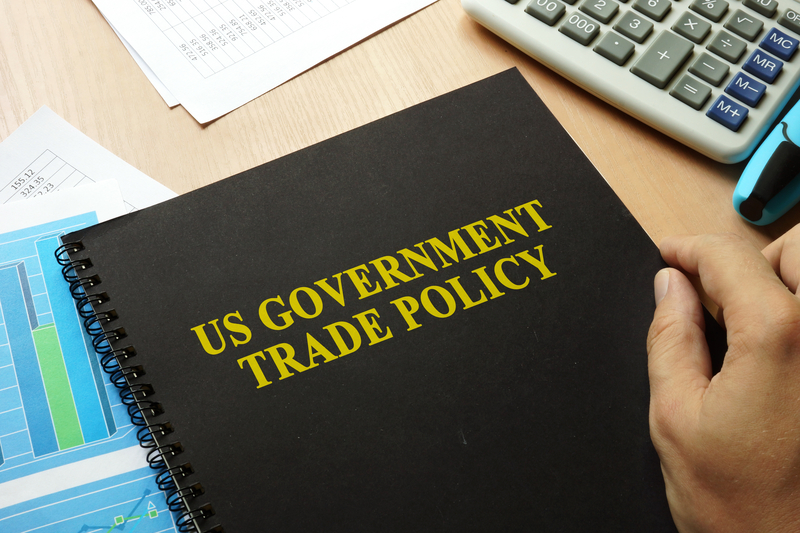
What is a Voluntary Self-Disclosure
A Voluntary Self-Disclosure (VSD) is conducted when an organization recognizes that violations or suspected violations of Export Regulations of the United States have occurred. This disclosure can reflect the organization’s due diligence in detecting, and correcting these violation. When conducting a voluntary self disclosure to the federal government the following supporting documentation should be presented:
- A description of the type of violation involved
- A compilation of all data that was not reported or incorrectly reported
- A list of dates of when the violations occurred
- A description of how the violations occurred
- Identities and addresses of all involved individual and entities
- Descriptions of any mitigating factors
- A compilation of corrective actions taken.
- A list of Internal Transaction Numbers (ITNs) of effected shipments
- Any additional information relevant to the issues
Do you need to file a Voluntary Self Disclosure?
Violations of US Export Law for the Export Administration Regulations (EAR) and International Traffic in Arms Regulations (ITAR) can often occur without malfeasance. It is therefore crucial that when companies recognize a violation of US Export Law at their company that they take action to report these events.
Such a filing can help mitigate potential damage to your company and in most cases results in the avoidance of fines, penalties, and negative exposure. Because failure to report violations may result in circumstances detrimental to U.S. national security and foreign policy interests, the enforcing agency will consider it an adverse factor when determining enforcement actions.
Export Administration Regulations
The EAR is administered by the Bureau of Industry and Security (BIS). The BIS considers VSDs as an indicator of an organization’s intent to comply with U.S. export law. The BIS carefully reviews VSDs to determine if violations have occurred. They then determine the appropriate corrective action when violations of the export regulations have taken place.
International Traffic in Arms Regulations
The ITAR is regulated by the Directorate of Defense Trade Controls or DDTC. The DDTC strongly encourages submitting a voluntary self disclosure of any potential violations of the Arms Export Control Act. Voluntary Disclosures may be viewed as a mitigating factor when determining administrative penalties, if any, that should be imposed.
Corrective Actions
It is important to realize however, that the Voluntary Self Disclosure is the first step in addressing the potential violation. Follow up measures must be taken to address the occurrence and organizational steps taken to prevent any subsequent similar violations. This can involve any number of administrative actions but must include training to ensure future compliance.
Failure to implement these steps can lead to penalties from the enforcement agency involved. These penalties can occur years after the initial incident if there is a recurrence of the violation and it is found that sufficient action was not taken.
Export Compliance Programs
To be certain, compliance to export law as relates to EAR, ITAR can be a challenge for any organization. Development of a program tailored to the needs of your company is important in protecting its reputation and ability to conduct business. This program must include relevant and regular training to maintain organizational rigor and scheduled assessments to ensure that the compliance program is in sync with the dynamics of an organization’s evolution.
Conducting a Voluntary Self Disclosure
A voluntary self disclosure can be painless, as long as it is honest and the company filing it takes action to prevent its reoccurrence. This action would likely include a formal written ITAR compliance program, training, processes to control restricted items and data from foreign persons and licensing when required by US export law. It is recommended that when a company files a VSD, that you ensure that all the documentation is prepared properly and in compliance with the requirements of the EAR or ITAR.
CVG Strategy Export Compliance Expertise
While many export compliance providers offer programs geared toward compliance with a single set of regulations, CVG Strategy offers a harmonized program that will ensure that your company is compliant to all of these regulations. Furthermore we consolidate this program in a collection of documents that can be integrated into a quality management system.
The CVG Strategy team has over 20 years of experience in U.S. export controls. We can help you develop an ITAR Compliance Program appropriate to your organizations requirements and provide training to prevent occurrences that could lead to violations and the need to file VSDs.
We also have the experience to assist in guidance when unforeseen incidents do occur to develop strategies to prevent future violations. CVG Strategy has assisted many organizations file Voluntary Self Disclosures in the past decade and is well equipped to help you, if your company needs to file.


